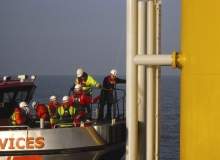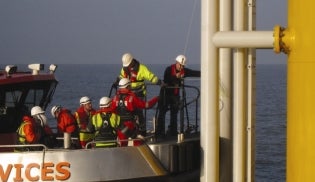

SeaRoc Group provides technical HSEQ advice and solutions to help clients to safely and efficiently deliver projects.
The company provides in-depth knowledge and practical application of onshore / offshore construction, marine and HSEQ legislation, and industry best practice.
SeaRoc’s services comprise:
Management systems
SeaRoc creates and implements HSEQ management systems to meet the client’s requirements, represent best practice and can be easily applied. The company can help businesses achieve certification to ISO 9001, ISO 14001 and OHSAS 18001, as well as other supplier databases such as Achilles.
SeaRoc also conducts gap analysis and / or creates bridging systems to align management systems and standards of multiple project stakeholders between clients, contractors and vessels.
Project HSE support
- Risk management: create and manage risk registers, coordinate risk assessment processes, ensure design risk assessments consider HSE risks throughout the project lifecycle, record design decisions, and facilitate workshops such as hazard identification and risk assessment (HIRA), and hazard operability (HAZOP).
- Ensuring the right processes are implemented: development and implementation of HSE risk control processes outlined in emergency response and construction phase plans.
- Ensuring the right people and plant are in place: conducting competency assessments, equipment checks and vessel suitability assessments
- Checking: monitoring of HSE performance on projects via audits, inspections and client representatives
SeaRoc is familiar with the European Construction Sites Directive (92/57/EEC) for temporary or mobile construction sites, UK Construction (Design & Management) Regulations 2015 (CDM), and advises clients on how to comply with the regulations.
Training
SeaRoc supplies:
- IOSH Managing Safely
- IOSH/ RTN Managing Safely for Offshore Renewables
- IOSH Working Safely
- Tailor-made training to fit your business needs

